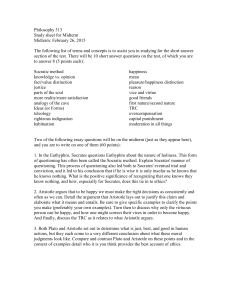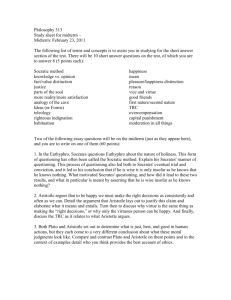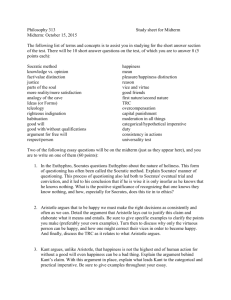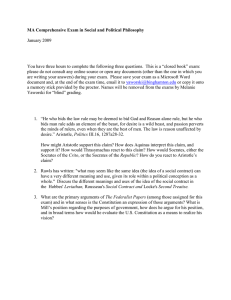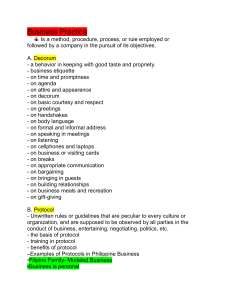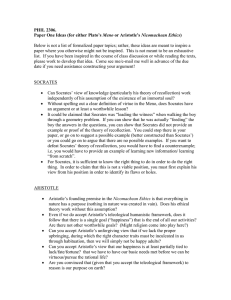here
advertisement
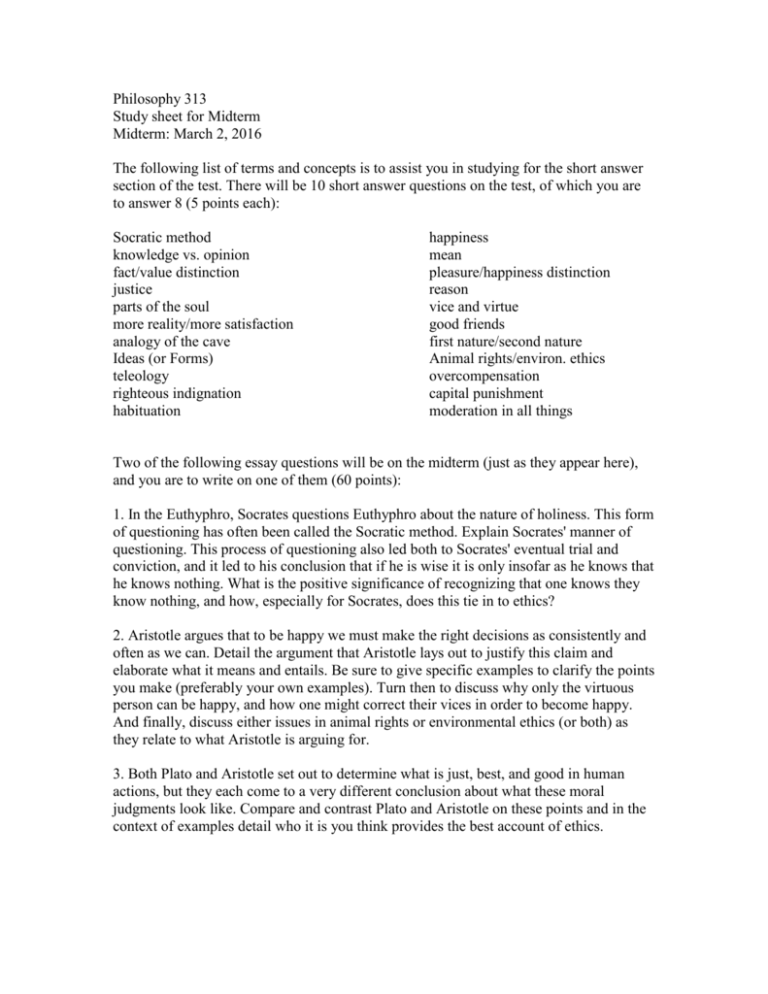
Philosophy 313 Study sheet for Midterm Midterm: March 2, 2016 The following list of terms and concepts is to assist you in studying for the short answer section of the test. There will be 10 short answer questions on the test, of which you are to answer 8 (5 points each): Socratic method knowledge vs. opinion fact/value distinction justice parts of the soul more reality/more satisfaction analogy of the cave Ideas (or Forms) teleology righteous indignation habituation happiness mean pleasure/happiness distinction reason vice and virtue good friends first nature/second nature Animal rights/environ. ethics overcompensation capital punishment moderation in all things Two of the following essay questions will be on the midterm (just as they appear here), and you are to write on one of them (60 points): 1. In the Euthyphro, Socrates questions Euthyphro about the nature of holiness. This form of questioning has often been called the Socratic method. Explain Socrates' manner of questioning. This process of questioning also led both to Socrates' eventual trial and conviction, and it led to his conclusion that if he is wise it is only insofar as he knows that he knows nothing. What is the positive significance of recognizing that one knows they know nothing, and how, especially for Socrates, does this tie in to ethics? 2. Aristotle argues that to be happy we must make the right decisions as consistently and often as we can. Detail the argument that Aristotle lays out to justify this claim and elaborate what it means and entails. Be sure to give specific examples to clarify the points you make (preferably your own examples). Turn then to discuss why only the virtuous person can be happy, and how one might correct their vices in order to become happy. And finally, discuss either issues in animal rights or environmental ethics (or both) as they relate to what Aristotle is arguing for. 3. Both Plato and Aristotle set out to determine what is just, best, and good in human actions, but they each come to a very different conclusion about what these moral judgments look like. Compare and contrast Plato and Aristotle on these points and in the context of examples detail who it is you think provides the best account of ethics.
